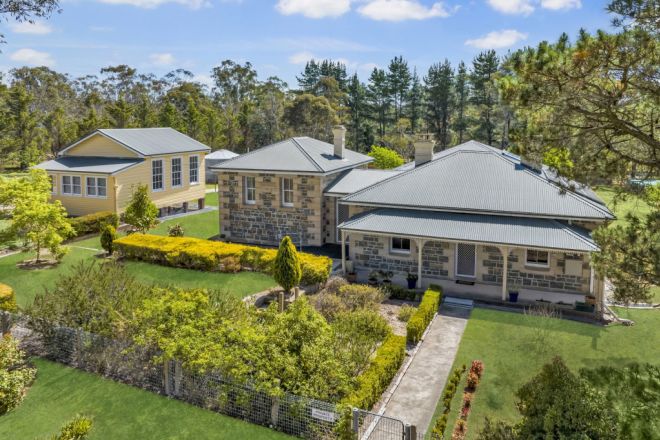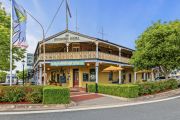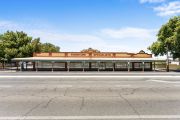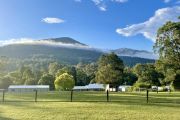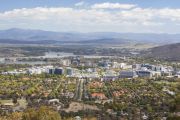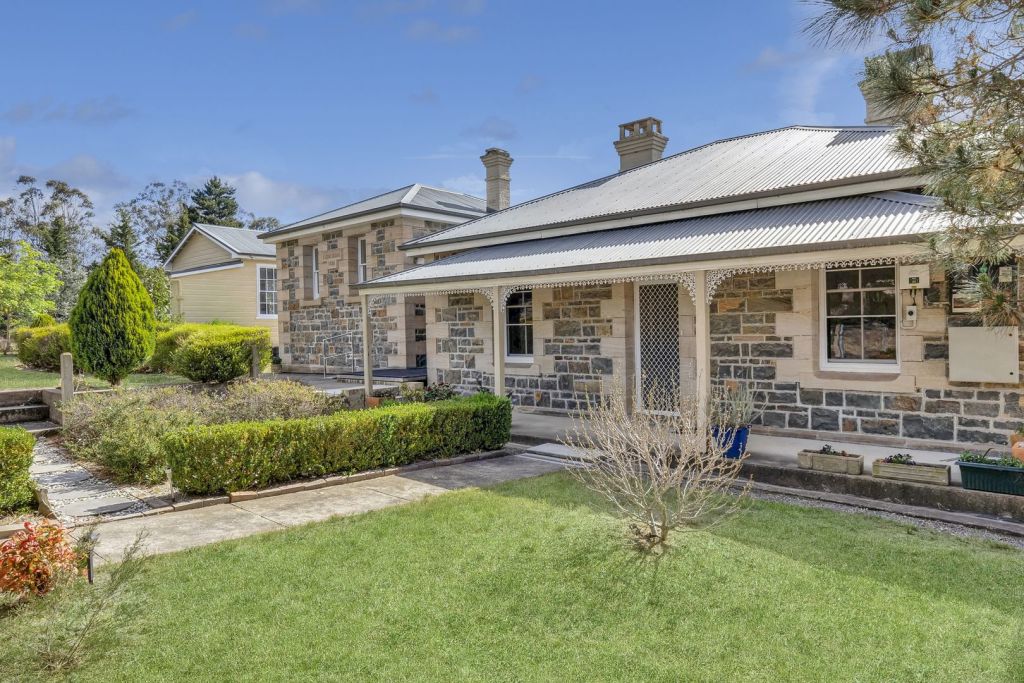
Historic properties for sale Australia: Circa 1882 stone school to be auctioned
It’s the home of the oldest Roman Catholic church in Australia and now also to one of the country’s most intriguing properties for sale.
The tiny NSW town of Bungonia – 185 kilometres south-west of Sydney and just an hour and a half’s drive from Canberra – is probably best known for St Michael’s, an 1839 cement-rendered rubble church. In 1866, the church became a school for 39 children.
But, in 1882, a new purpose-built school was constructed and educated the farming area’s children for over 100 years until it closed in 1994.
Since then, that magnificent bluestone, sandstone and hardwood Victorian school, with its separate classrooms on-site, has functioned as a scientific learning establishment and then as a private home. Now, it’s been put up for sale, with full marks from the sales agent.
“It’s not often that you get a school come up for sale, especially one built in the 1800s,” said @realty agent Elias Sleiman.
“It’s a wonderful property that’s steeped in a really colourful history – you can almost hear the excited chatter of children’s voices!

“But now it’s also a beautiful home, full of charm and character, in a very special little town, set in a lovely environment. There are lots of grazing properties nearby, and many of them are populated by families who have been based there since the 1800s.”
The school is on 0.8 hectares of park-like land at 34 King Street, Bungonia, and comprises a number of buildings. The main building is the one made of stone, with high ceilings and large spaces, which has been extended and renovated into a comfortable, contemporary five-bedroom, two-bathroom home.

The original classroom nearby has been lovingly maintained and still has its blackboard at the front of the room, together with desks and chairs and even the old water fountains.
It’s now to go to auction on December 16, with a price guide in the early-to-mid $1 million.
The owner of the property, Diana Moran, 71, is reluctant to sell but is keen to move closer to family.
“I’m originally from Sydney but my husband was really keen on farming and we wanted our children to experience the Australian bush and its lifestyle,” she said.

“So, we moved to the area in 1989 to a farming property and then bought the school to use for our scientific business, with electro-microscopes.
“We’d bring scientists down to teach them how to use the equipment, and turned the stone building, which used to be the master’s house, into a home, extending and modernising it. It’s a beautiful place and I’ll be very sad to leave it but it will be a great home for another family.”
Moran planted a vegetable garden and orchard while she was there and loved all the wildlife that visited, like the kangaroos, possums and a huge variety of birds. It’s also only 10 minutes’ drive from Marulan Station and town centre with cafes, a pub, a bakery and supermarket.

Another nearby attraction is the Bungonia National Park, which has deep limestone gorges, forests and caves, some of which are said to be the deepest in Australia. Research has revealed it has over 70 types of birds and 300 species of flora. It’s popular for walking, caving, canyoning and climbing.
But the house itself is also a draw, with floorboards, air-conditioning, a balcony, deck, outdoor entertainment area, an open fireplace, water tank, solar hot water, pay TV access and full fencing.

“We were very careful with the extension and made sure it blended in with the original building as much as possible,” said Moran. “It’s a fantastic place for kids, too, with a children’s enclosure for young ones.
“It’s wonderful living in a small village, too, in an area that’s never going to be crowded out with houses. The crown reserve on the side is a biodiversity hotspot, and the whole area has a lovely atmosphere.”

Sleiman agrees. “There is so much Australian settler history here, and it will really appeal to anyone who likes old buildings, who can use it as their own home, or as a home away from home as a complete break from the city.
“You can also imagine it could be turned into an attraction in its own right, with a cafe or restaurant on site. It has so much potential.”
